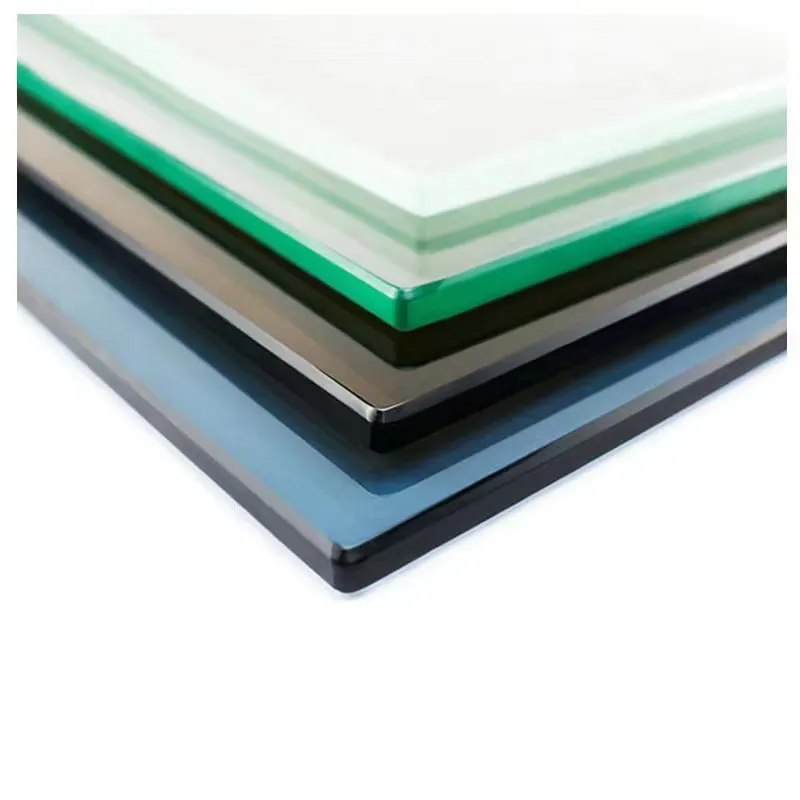Understanding Plain Float Glass Properties and Applications
Plain float glass is a fundamental material in the construction and manufacturing industries, celebrated for its simplicity and versatility. This type of glass is created through the float glass process, a method that involves floating molten glass on top of molten tin. This process results in a smooth, flat surface that is essential for a variety of applications, from windows to decorative objects.
One of the defining features of plain float glass is its clarity. The float glass process produces a product with minimal impurities, allowing for high levels of light transmission without distorting the view. This transparency makes it ideal for architectural applications. Architects and builders favor plain float glass for windows, facades, and glass walls as it allows natural light to penetrate interiors while providing a clear view of the outside.
The physical properties of plain float glass contribute to its wide array of uses. It is available in various thicknesses and sizes, allowing for customization based on specific project requirements. Moreover, float glass possesses good resistance to weather conditions, making it suitable for exterior applications. However, it is important to note that while plain float glass is robust in terms of its optical properties, it is more vulnerable to impact and, compared to tempered or laminated glass, lacks significant strength and safety features.
plain float glass
The manufacturing process of plain float glass begins with melting raw materials, such as silica sand, soda ash, and limestone, at high temperatures
. The molten glass is then carefully poured onto a bath of molten tin, where it spreads out to form a flat sheet. After cooling, the glass is cut into desired sizes and may be further processed to meet specific requirements, such as coating or finishing for enhanced performance.
In addition to its use in buildings, plain float glass has applications in various industries. It is commonly used in furniture design, such as tabletops and shelves, where its aesthetic appeal and functionality come into play. Furthermore, it is widely employed in the automotive sector for windshields and windows, ensuring clear visibility for drivers and passengers alike.
Sustainability is becoming an increasingly important aspect of glass production, including plain float glass. Manufacturers are now focusing on reducing energy consumption during production and incorporating recycled materials into their processes. This shift not only minimizes environmental impact but also caters to the growing market demand for eco-friendly building materials.
In conclusion, plain float glass is a remarkable material that combines aesthetic appeal with functional versatility. Its clarity, ease of customization, and adaptability make it a staple in various sectors, particularly in architecture and design. As industries continue to evolve and prioritize sustainability, the methods of producing and utilizing plain float glass will likely advance, ensuring its place as an essential component of modern life.
 Afrikaans
Afrikaans  Albanian
Albanian  Amharic
Amharic  Arabic
Arabic  Armenian
Armenian  Azerbaijani
Azerbaijani  Basque
Basque  Belarusian
Belarusian  Bengali
Bengali  Bosnian
Bosnian  Bulgarian
Bulgarian  Catalan
Catalan  Cebuano
Cebuano  Corsican
Corsican  Croatian
Croatian  Czech
Czech  Danish
Danish  Dutch
Dutch  English
English  Esperanto
Esperanto  Estonian
Estonian  Finnish
Finnish  French
French  Frisian
Frisian  Galician
Galician  Georgian
Georgian  German
German  Greek
Greek  Gujarati
Gujarati  Haitian Creole
Haitian Creole  hausa
hausa  hawaiian
hawaiian  Hebrew
Hebrew  Hindi
Hindi  Miao
Miao  Hungarian
Hungarian  Icelandic
Icelandic  igbo
igbo  Indonesian
Indonesian  irish
irish  Italian
Italian  Japanese
Japanese  Javanese
Javanese  Kannada
Kannada  kazakh
kazakh  Khmer
Khmer  Rwandese
Rwandese  Korean
Korean  Kurdish
Kurdish  Kyrgyz
Kyrgyz  Lao
Lao  Latin
Latin  Latvian
Latvian  Lithuanian
Lithuanian  Luxembourgish
Luxembourgish  Macedonian
Macedonian  Malgashi
Malgashi  Malay
Malay  Malayalam
Malayalam  Maltese
Maltese  Maori
Maori  Marathi
Marathi  Mongolian
Mongolian  Myanmar
Myanmar  Nepali
Nepali  Norwegian
Norwegian  Norwegian
Norwegian  Occitan
Occitan  Pashto
Pashto  Persian
Persian  Polish
Polish  Portuguese
Portuguese  Punjabi
Punjabi  Romanian
Romanian  Russian
Russian  Samoan
Samoan  Scottish Gaelic
Scottish Gaelic  Serbian
Serbian  Sesotho
Sesotho  Shona
Shona  Sindhi
Sindhi  Sinhala
Sinhala  Slovak
Slovak  Slovenian
Slovenian  Somali
Somali  Spanish
Spanish  Sundanese
Sundanese  Swahili
Swahili  Swedish
Swedish  Tagalog
Tagalog  Tajik
Tajik  Tamil
Tamil  Tatar
Tatar  Telugu
Telugu  Thai
Thai  Turkish
Turkish  Turkmen
Turkmen  Ukrainian
Ukrainian  Urdu
Urdu  Uighur
Uighur  Uzbek
Uzbek  Vietnamese
Vietnamese  Welsh
Welsh  Bantu
Bantu  Yiddish
Yiddish  Yoruba
Yoruba  Zulu
Zulu 

